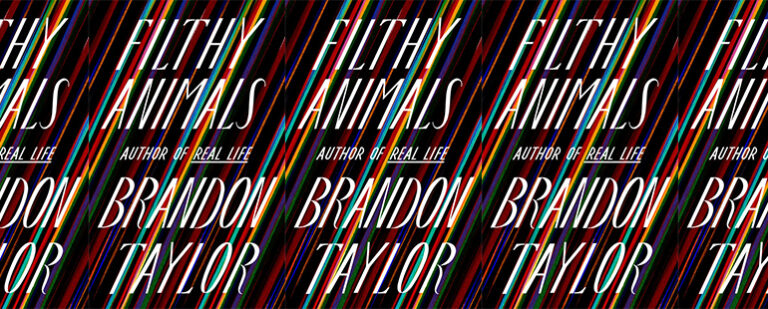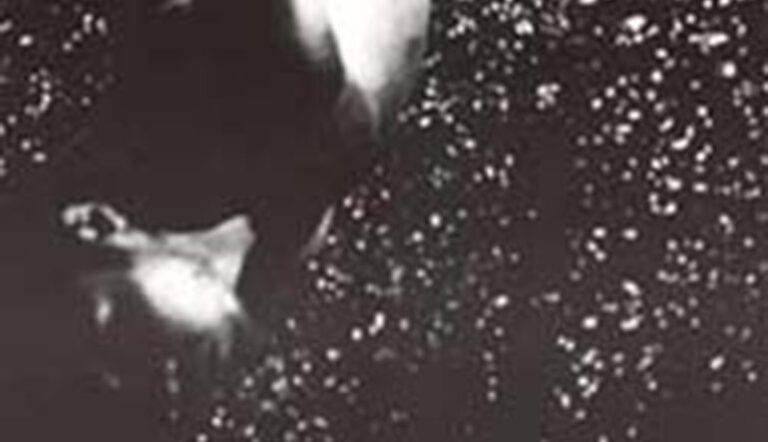Literary Boroughs #16: Atlanta, Georgia
The Literary Boroughs series will explore little-known and well-known literary communities across the country and world and show that while literary culture can exist online without regard to geographic location, it also continues to thrive locally. Posts are by no means exhaustive and we encourage our readers to contribute in the comment section. The series will run on our blog from May 2012 until AWP13 in Boston. Please enjoy the sixteenth post on Atlanta, Georgia by Gabrielle Soria. -Andrea Martucci, Ploughshares Managing Editor
“Savannah would be better for ya. You’d just get in trouble in Atlanta.” So claims Mammy in Gone With the Wind, in an attempt to make Miss Scarlett see some sense. While Savannah, with all of its Spanish-moss draped glory, is precisely what you’d think of when you think South, Atlanta has come to defy presumptive expectations. At once traditional, original, edgy, conservative and liberal; it’s the hodgepodge between the old Georgia and the new, a culmination of forward-thinking and age-old traditions.
Established in the mid-1800s, Atlanta fell to ashes during Sherman’s March to the Sea in the Civil War. What has risen from those ashes is literally the hub of the South and the 9th largest in the country. But even as a city Atlanta can’t decide what it wants to be. There are two skylines in the city: one, a modern, manmade panorama of glass and marble, the other, the sweeping boughs and peaked tops of Mother Nature’s own pines and oaks. In fact, the tree canopy is so thick that from the top of the Bank of America building, the tallest in the city, you feel like you are looking out over a forest.
Yet despite the big-city feel, Atlanta is a close-knit community—even more so lately, with the big push to buy, eat, and live local (Scoutmob, epitome of local love, was founded in Atlanta). It’s easy to enter the city as a newcomer and feel like an old hand in a matter of months. In fact, you shouldn’t be surprised if half of the people you know wind up knowing each other, which makes breaking out the Sweetwater and settling down for some good conversation under the stars (minding the mosquitoes, of course) that much easier. And that’s Southern living at its best.
City: Atlanta, Georgia
What the city is known for: Succulent barbeque. Steaming heat. Lilting drawls. Southern belles. Civil rights. Ripened peaches. Olympic legacies. Wide porches. Coca-Cola.
Resident writers:
Notably: Margaret Mitchell, W.E.B. DuBois, Alice Walker, Alfred Uhry, Joel Chandler Harris, Ralph McGill, James Dickey, Conrad Aiken, Barbara Ras, Afred Corn, Wyatt Prunty, Kevin Young, Hank Klibanoff, Kathryn Stockett, and the newly named the U.S. Poet Laureate, Natasha Trethewey. The Georgia Center for the Book also offers a comprehensive list of Georgian authors.
Literary references:
Most famously is Margaret Mitchell’s sweeping Civil-War romance, Gone With the Wind (the novel just celebrated the 75th anniversary of its publication this year). In Driving Miss Daisy, by Alfred Uhry, Daisy Werthan, an elderly Southern Jewish woman, and her African-American chauffeur, Hoke Colburn, explore life in Atlanta from 1948 to 1973.
Where to learn: Writing programs/centers (degree based or other):
Emory University
Spelman College offers an English major with a Writing minor that allows students to choose between an emphasis in Creative Writing, or an emphasis in Multi-Media, Research and Professional Writing.
Non-fiction fans should consider Savannah College of Art and Design (SCAD). New media storytellers and e-publishing are focuses of the SCAD program. Plus classes are held at Ivy Hall, which is not only one of the most unique buildings in the A, but also host to the Ivy Hall Writer’s series, where you can catch such fine folk as Augusten Burroughs, Chuck Klosterman, and Margaret Atwood.
In a less formal setting, join humorist, columnist, NPR commentator and author Hollis Gillespie (@hollisgillespie) for writing seminars and workshops at The Shocking Real-Life Writing Academy. For the young and talented, there’s the Atlanta Young Writer’s Institute (@atlyoungwriters), which offers a summer intensive and year-round programming. For those who want to take their writing experience and help the community, consider volunteering with Wink, a program that empowers middle school students to find their storytelling voice, and culminates in a published book.
Where to find reading material:
As in many communities, the small, independent bookstores of Atlanta are struggling. In 2012 alone we’ve lost two wonderful little shops and community anchors: Blue Elephant Book Shop and Outwrite Bookstore. So while we have our shares of Barnes and Nobles around town, if you’re in the Atlanta area, please check out some of our local offerings: Bound to Be Read, Eagle Eye (@eagleeyebooks), Charis Books and More, The Book Stop, and Little Shop of Stories. There is also C. Dickens Books, which specializes in rare and antique titles.
Where to get published:
Atlanta is home to a few small, independent publishers. Peachtree Publishers focuses on books with a local slant, especially children and young adult titles. August House specializes in children’s stories, folktale anthologies, and resource books.
Local literary magazines include The Atlanta Review, The Chattahootchee Review, The Kennesaw Review, The Georgia Review (@GeorgiaReview, https://www.facebook.com/pages/The-Georgia-Review/138484081088?ref=ts) Five Points. Plus keep an eye out for guerilla bookstores sponsored by Vouched Books (@vouchedatl).
Also, once a year Creative Loafing Atlanta sponsors an annual Fiction Contest.
Where to write:
For those with day jobs, I’d recommend packing a small notebook and a pen in the glove compartment of your car, because Lord knows there will be plenty of time to write while you wait in traffic to and from work.
For a quiet, outdoor space, try Oakland Cemetery. Maybe the ghosts will have a story or two to share—if that fails, you can play pilgrim to Margaret Mitchell’s grave. Excellent people-watching can be found at many of the local parks—find a shady spot at Piedmont, Grant, Candler, or Inman. And if all else fails, nothing says Atlanta more than a wicker cane rocker on the front porch. Snag a glass of sweet tea and your laptop and take it as it comes.
Like most cities, Atlanta has a number of local coffeeshops. I’d encourage you to explore the city and find the perfect fit for you—besides, who knows what inspiration you might pick up along the way. Among my personal favorites are Dr. Bombay’s, Steady Hand, Octane (though parking is absolutely terrible, the West Side location is particularly nice), Inman Perk, Café Nineteen, and Java Monkey.
Events/Festivals:
Beyond the annual lecture series at local colleges, the largest literary event in the Atlanta Metro area is the Decatur Book Festival (@DBookFestival) (https://www.facebook.com/DecaturBookFestival), which takes place just east of Atlanta in Decatur, GA over Labor Day weekend. Bringing together over 300 authors (local and otherwise), the free event features lectures on getting published and writing techniques, author signings and readings, literature critiques, activities and readings for children, and a special keynote address, as well as booths for writing resources and booksellers.
No longer a stand-alone event, The Atlanta Queer Lit Festival hosts semi-regular workshops, lectures, and readings throughout the year. They also collaborate with other local organizations, like the Museum of Design Atlanta, fusing writing inspired by and paired with other art mediums.
For those itching to leave the city and get some sea air, check out the Georgia Literary Festival, which takes place this year in November on Georgia’s Jekyll Island. Hosted by the Georgia Center for the Book, the festival celebrates writers and writing in a different part of the state each year.
The Marcus JCC Atlanta also hosts a literary event in November every year. Spanning fifteen days (November 1 – 18, 2012), this festival celebrates the richness of Jewish literature and features prominent Jewish authors, journalists, scholars, and personalities, including the likes of Madeline Albright, Pat Conroy, and Elie Wiesel.
For fantasy and sci-fi lovers, scope out Dragon*Con Atlanta, which also takes place Labor Day weekend (August 31 – September 3, 2012). This year there were two writing workshop sessions.
Next post: September 12 | Great Falls, Montana…
Gabrielle Soria received her B.F.A from Emerson College in Writing, Literature, and Publishing in 2009. After at a stint in Editorial at Little, Brown, and Company, she ventured to the Southland. She now works in communications for Emory University, where in between writing marketing materials and fundraising proposals, she shares elevators with Salman Rushdie. Her writing has appeared in Stork and Tiny Somethings, and online on Frostwriting.
Photo credits: Little Shop of Stories. All other photos by author.


